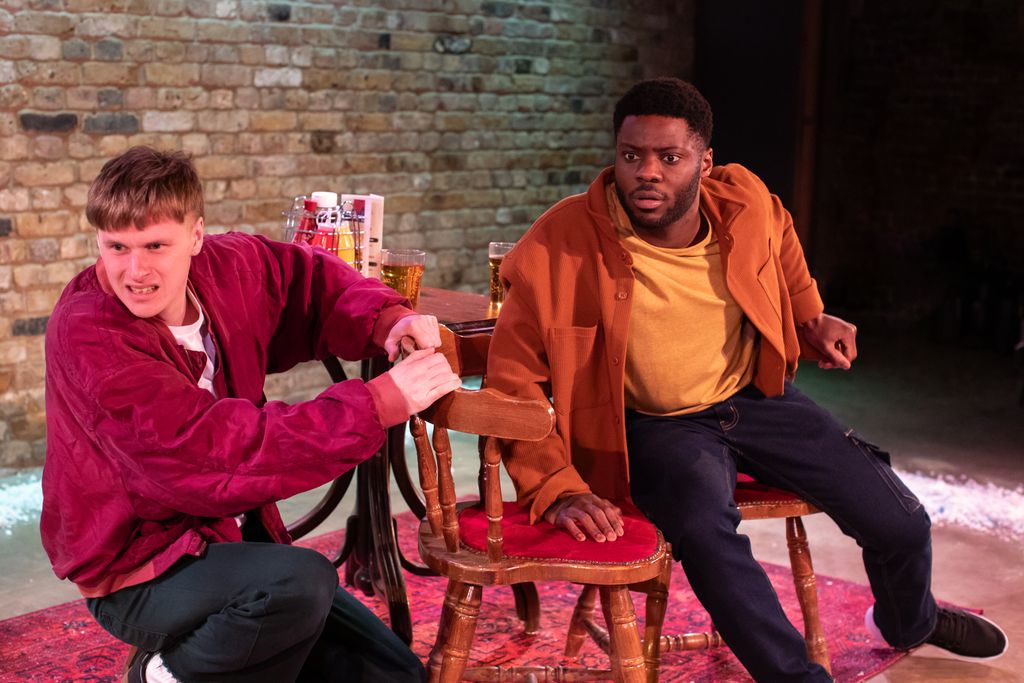
HENRY Madd’s Land Of Lost Content is a frustrated love letter to his rural hometown.
On tour at Theatre@41, Monkgate, York, tomorrow night (28/4/2024), it carries the trigger warning: References to domestic and sexual abuse, drug and alcohol use, suicide and self-harm.
“It’s about the messiness of old friendships that should probably end but won’t because they’re the only ones who know what it was really like to grow up where you did,” he says of his provocative autobiographical piece.
“This show champions rural voices, it demands that people pay attention to the darker side of life in a small town, while celebrating the beauty of it. Too often rural characters are neglected from mainstream media, but the characters in this show are real and relatable; they are based off the people I knew growing up and still know now.”
Directed originally by Nic Connaughton, the Pleasance’s head of theatre, and now co-directed by Lauren Lambert Moore for the tour, Madd’s insight into friendship, adolescence, forgiveness and life not going to plan is an empowering coming-of-age story about the trials of growing up in a small country town and its ongoing effects on two estranged mates.
Henry (Madd) and Jake (Marc Benga) were bored friends who grew up in Ludlow, where friendships were forged in failed adventures, bad habits and damp raves as they stumbled through teenage days looking for something to do. Then Henry moved away.
Now he is back, and there will be no enjoying a welcome home pint without facing up to the memories – and the people – he left behind.
“Welcome to a town where worlds are turned upside down in an instant, yet nothing seems to change,” says Madd.
Drawing on themes of mental health and substance abuse in rural areas, Land Of Lost Content sheds light on the unique challenges small-town life poses to relationships, through a blend of theatre and spoken word in a “necessary analysis on underfunded mental health and youth services, and the stigma around reaching out”.
To sum up Land Of Lost Content: “Immersing audiences from all backgrounds in its microcosm, issues of youth mental health and addiction in rural areas are addressed through Henry and Jake’s complicated rekindling, as they navigate small town hardships – including unreliable buses – while life refuses to go to plan.”

Here son of Ludlow Henry Madd discusses life in a rural town with son of Ripon Charles Hutchinson
Why are rural lives and voices neglected by the mainstream media and culture?
“They’re wrongly seen as being less relevant. It’s the job of art to hold a mirror up to society, right? But people forget that the countryside is part of that. There’s an assumed belief in this country that what happens in the countryside is less important or newsworthy than events in the city.
“Therefore, characters in these rural areas are rarely explored in depth and fall into played-out stereotypes, namely: landed gentry, country bumpkins and murder victims.
“Stories often start with characters who have ‘finally broken free’ from small-town homes and are starting their new life in the big city. There’s a suggestion that everything that happened before this moment didn’t count.
“This show does the opposite. It goes back and sits with that time, appreciates it, confronts it and tries to forgive it where needed.”
What was good about growing up in Ludlow?
“No-one was paying attention to what we were doing.”
What was bad about growing up in Ludlow?
“No-one was paying attention to what we were doing.”
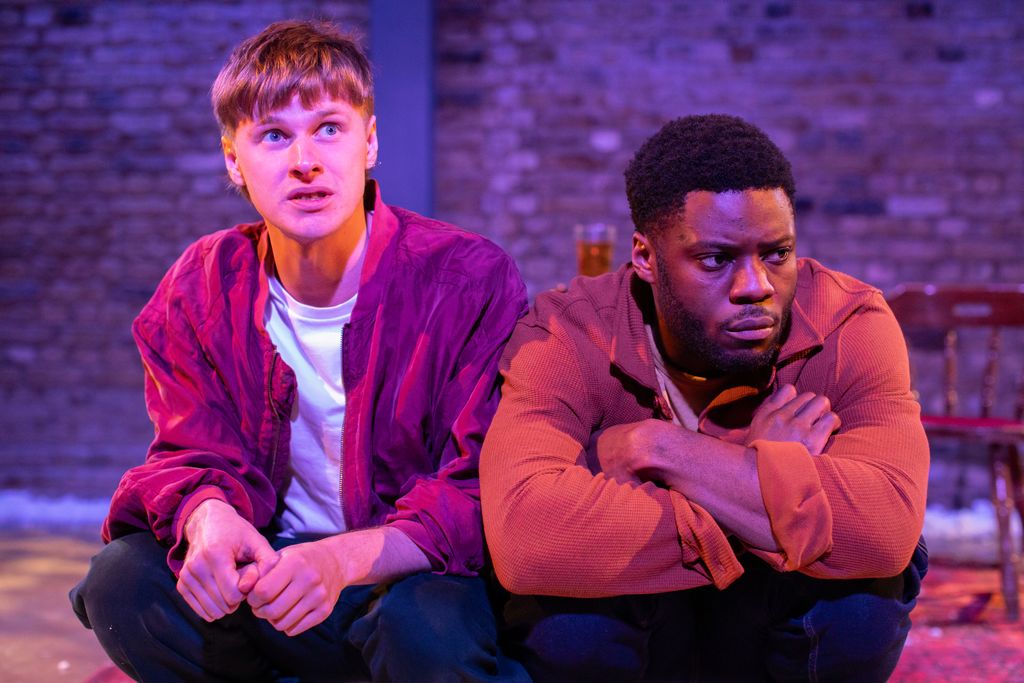
What leads to mental health issues and substance abuse in adolescence in a rural town? Has that scenario worsened? How could it be improved?
“I think the popularity of substance abuse is rural areas is caused by a perfect storm. Boredom, lack of youth services, lack of services to spot problems, plenty of outdoor space for things to happen secretly and a population where different ages are more likely mingle.
“However, in many ways for me, this created a safe community to experiment in; people looked out for each other. We had a lot of fun at the time, but the repercussions later down the line have been undeniable.
“Whenever I return, I see the same things are happening. It’s a point we talk about in the show: ‘The faces change but never age’. In many ways it seems unchangeable, but so do all things before they…well…change.
“There are many ways it could be improved, certainly investing more heavily in the arts to provide young people with more outlets to express themselves. But also, creating a culture that doesn’t demonise these ‘anti-social’ behaviours as much, so that there is a better support system when people get into trouble.”
The underfunding of youth services is a perennial problem. Discuss…
“After a decade of Tory austerity, it’s hard to think of anything new to say on the matter. We all know that there are far reaching negative consequences of cutting youth services. That’s not to say that these services can fix everything, but they help; they offer an alternative and a safe space to come back to and that’s important.
“I think one of the issues is that we’re stuck in a culture of putting out fires, rather than preventing them happening. ‘Children are the future’ is a soundbite no-one seems to believe despite its undeniable truth.”
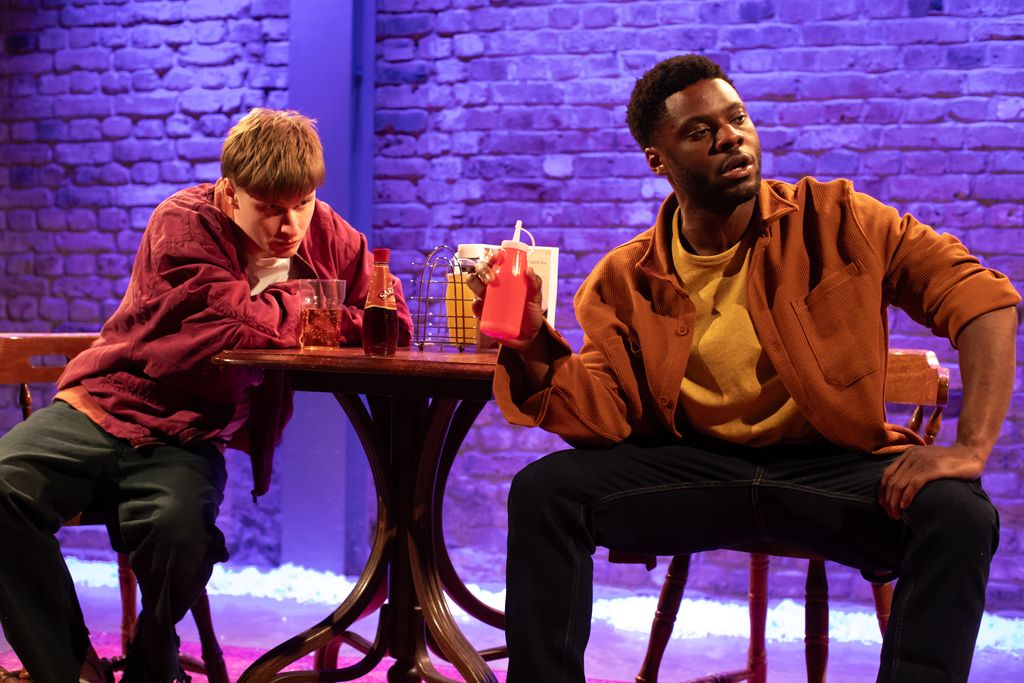
Are rural town teenage days “forged in failed adventures, bad habits and damp raves, stumbling through adolescence looking for something to do”, inexorably inevitable?
“Yeah, of course, to a certain extent. But work can be done to make sure that those who do it are the ones who want to do it, not because there was no other option.
“If you’ve grown up in that culture it’s hard to imagine an alternative, but I’ve definitely spoken to people who had much calmer times growing up and weren’t sniffing ketamine before school, so I think it must be possible.”
Sum up Ludlow in five words.
“Contradictory. Repetitive. Seductive. Frustrating. Sausages.”
What was the writing process behind such a deeply autobiographical piece? Did it differ from how you usually write?
“It was the story I had in me that I needed to tell, and I couldn’t have written anything else at the time. Aside from the work I write for children, which is more fantastical, all my writing is autobiographical.
“The process was tough. It involved a lot of sitting with uncomfortable memories and questioning why I was doing it. I felt a huge responsibility to try and tell it honestly while still protecting people’s identities and making it work for the stage.”
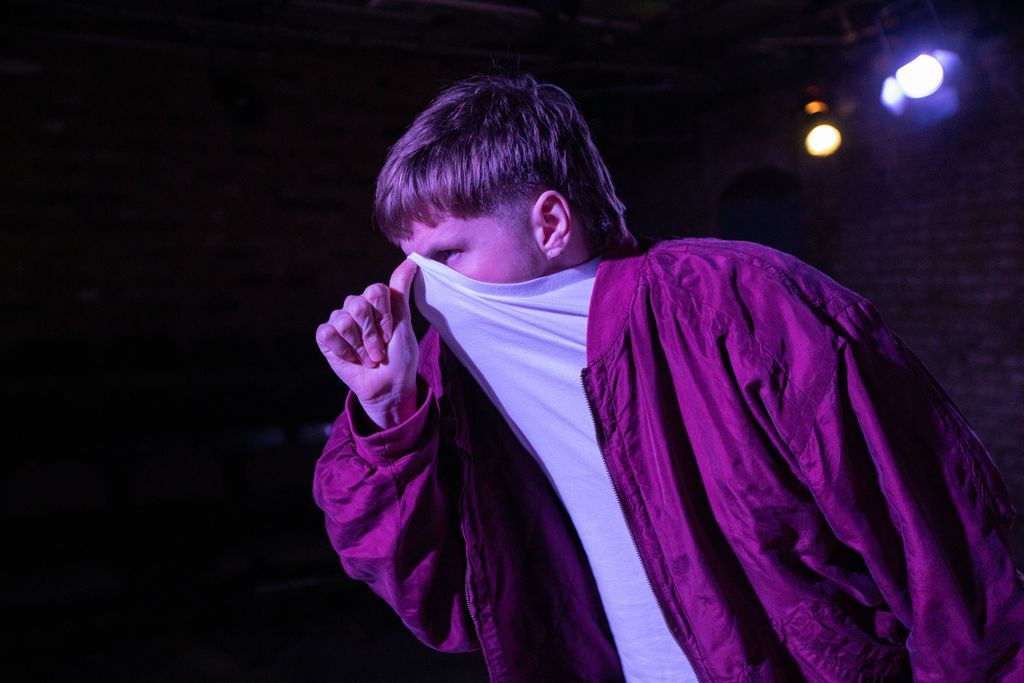
How did you come up with the title Land Of Lost Content?
“Stole it! It’s taken from a poem in A E Housman’s collections Shropshire Lad. I felt it captured the sense of a place that used to provide everything you needed but no longer does so. Unfortunately, everyone pronounces the words ‘content’ the wrong way and I regret choosing it.” [That sounds like ‘discontent’ with it, Henry – Editor].
Have you made any adjustments to the play since its initial performances at Edinburgh Fringe and in London in 2022?
“Absolutely. I’m constantly tweaking it. The longer we do the show, the more objective I am about the writing. I used to hate cutting lines but now I’m much less precious, and the script is leaner, more efficient, and clearer because of it.
“The show has been re-directed for the tour by the amazing Lauren Lambert Moore, and she’s really leant into the youthful, playful side of the show, which gives it a fresh new life.”
What three words would you use to summarise Land Of Lost Content?
“Heartfelt. Energetic. Nostalgic.”
What can the York audience expect to see in tomorrow’s performance?
“Plenty of laughter, wild stories, a bear who owns a pub, bad dancing (lots of bad dancing, blame Lauren) and hard-hitting conversations.”
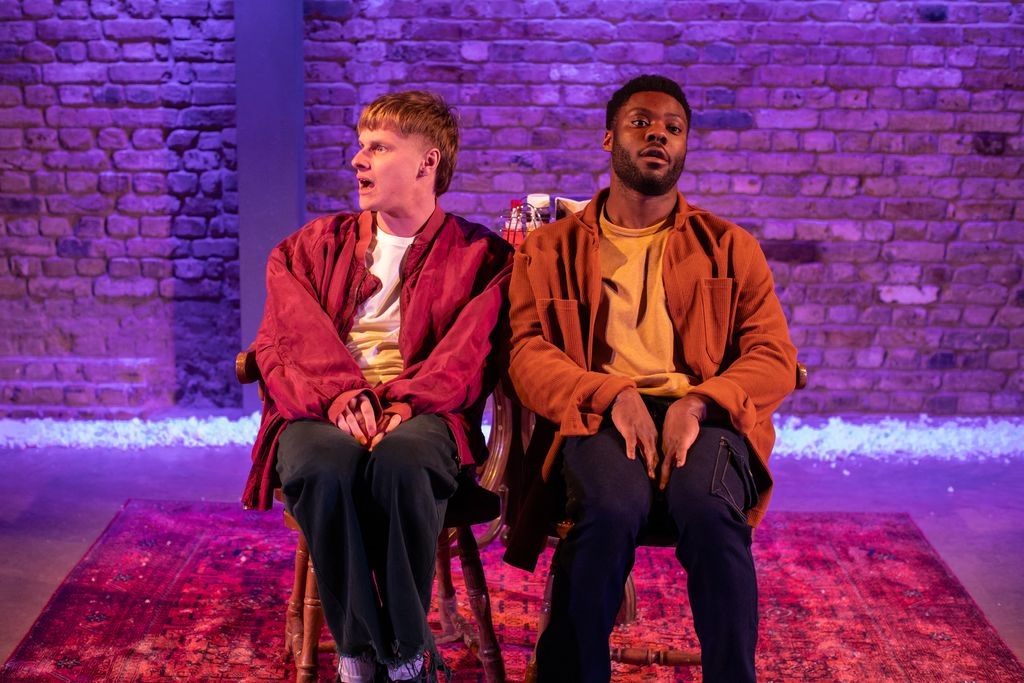
This tour has visited London, Tunbridge Wells, Canterbury, Norwich, Guildford, Oxford, Bristol, Leeds, Hereford, Birmingham and Bradford so far. What has been the response?
“One of the most gratifying things about this show has been the response of how many people have related to it, no matter where they are from. There is a tendency for rural theatre to only play to rural audiences. While it is important to bring this material to the audiences that may relate to it the most, I am committed to sharing these stories with a wider audience.”
Who are your biggest inspirations in the arts world?
“There’s too many to name (he says about to name some!). I feel like all I do is obsess over other artists and try to recreate what they do. That said, Jez Butterworth and Shane Meadows, if we’re talking big names in theatre and film.
“Ocean Vuong, who’s reminds me that it’s possible to be direct and poetic at the same time. The poet Helen Heckety, whose show To Helen Back, was the first time I’d ever seen spoken word/theatre/autobiography/surreal all done together, and I just remember watching it and going, ‘Yeah, that’s it, that’s what I want to do’.”
If you could collaborate with anyone, alive or dead, who would you choose?
“I mean if anyone’s got Jez’s number and wants to contact him for me, that’d be great. I also love working with different art forms and I love dance, despite being rubbish at it, so working with a choreographer like Pina Bausch would be a dream.”
And finally, Henry, can you outgrow your hometown?
“I think you just have to find different ways to wear it.”
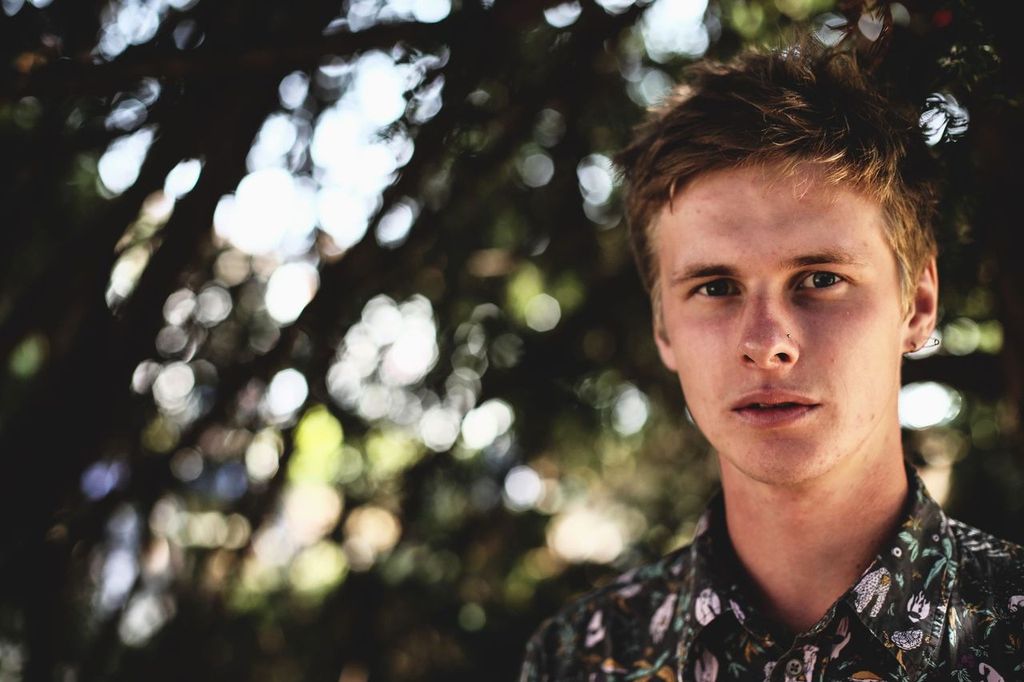
Henry Madd: the back story
Poet, educator and theatre maker born in the West Midlands, now operating in Margate.
His work, rooted in his rural upbringing, veers from the heart-warming to the heart- wrenching, always with a healthy dose of comedy woven in.
Performed across the UK and internationally, sharing stages with Rudy Francisco, Harry Baker and Lemn Sissay.
Committed to delivering community art projects, working with organisations from Public Library of San Diego to Philharmonia Orchestra.
Regularly hosts and produces music and poetry events around Kent.
Supported artist of The Marlowe Theatre, Canterbury.
Follow Henry and his tour at: www.henrymadd.com, Instagram @henrymaddpoet; X @Content_land
Henry Madd’s Land Of Lost Content, Theatre@41, Monkgate, York, tomorrow (28/4/2024), 7.30pm. Box office:
